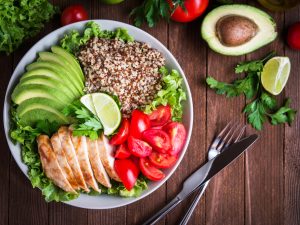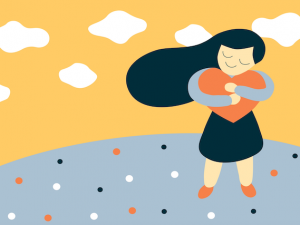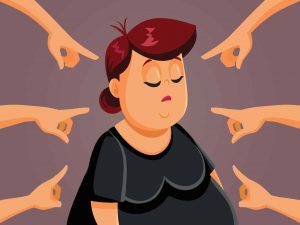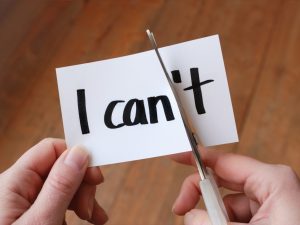Constipation is considered when a person suffers from two or more of the following symptoms in more than 25% of stools:
It would be best if you had excessive effort to evacuate.
The stools are hard or caprine.
Evacuate less than three times a week.
There is a feeling of incomplete emptying or discomfort after the bowel movement.
Note sensation of obstruction in the anus.
You must perform maneuvers such as digital extraction or compression of the pelvic floor to expel stool or use suppositories, laxatives, or enemas.Why does it occur?
Different causes cause constipation, the main one being insufficient fiber intake in the diet due to alterations in the propulsion of feces or alterations in the expulsion of the same.
A punctual and restrictive change in diet, a decrease in usual activity or an increase in sedentary lifestyle, or even bed rest or the use of some specific treatments can cause acute constipation, which lasts less than three months.
Other causes of constipation are the alteration in the normal functions of the intestine, the use of drugs that favor constipation (iron supplements, drugs derived from morphine, some antidepressants, and anxiolytics, among others), and some diseases such as diabetes, hypothyroidism, diseases in the colon or intestine and neurological diseases such as strokes, multiple sclerosis or Parkinson’s disease.
Symptoms
Constipation can cause discomfort, such as abdominal pain with a feeling of swelling, nausea, and even vomiting, with decreased appetite. This can lead to decreased intake, which in turn can aggravate the problem.
Impact
In the medium and long term, it can produce other pathologies:
Hemorrhoids generally appear in chronic constipation due to congestion and inflammation of the veins of the anal region. Episodes of inflammation of the same can occur, causing pain and bleeding due to friction, generally when a large and complex stool passes through the anal canal.
Anal fissures are minor wounds in the anal sphincter that are usually produced by the mechanical effect of large and complex stools. Anal fissures are very painful and increase the tone of the sphincter muscle, which can encourage constipation to continue, perpetuating both problems. Anal bleeding may occur during bowel movements and when wiping.
Colon diverticula: consists of the appearance of small "sacks" in the colon wall due to increased pressure within the colon due to constipation. It is more frequent that they appear and increase with age, being infrequent before age 50. Generally, diverticula do not cause discomfort, but episodes of inflammation may appear, called diverticulitis, which in some cases may require urgent surgery. They are also sometimes related to abdominal pain and episodes of diarrhea, requiring periodic treatment with antibiotics.How can we avoid Consequences of being constipated?
The most important measure to avoid constipation is to follow healthy lifestyle habits:
Diet: It is imperative to follow a diet rich in fiber. Fiber is a material that is neither absorbable nor digestible by the intestine, so it reaches the colon "intact" and is the most crucial part of fecal matter. It also drags water and thus favors the stool's consistency to be adequate to expel it without difficulty. We can obtain it mainly from vegetables, fresh or cooked, and fresh fruit, especially when we eat it with the skin. We can also find fiber in legumes; other foods such as nuts, cereals, and wholemeal flour can provide an additional supplement. Excessive consumption of fiber could produce flatulence and distention of the abdomen.
Exercising regularly helps to facilitate bowel movement and thus the propulsion of feces, reducing constipation.
Depositional habit: it is common for the desire to defecate to be triggered in the morning when bowel movements begin after breakfast and night rest. It is advisable to defecate at this time, turning it into a habit if you can do it long enough.
Laxatives: if we suffer from constipation, despite following the above guidelines, several types of laxatives can help:
Bulk-forming laxatives: fiber-based compounds should be taken with plenty of water. Its effect appears after several weeks. They have a satiating effect, so they are generally recommended to be taken after meals so as not to reduce the usual intake. They are usually based on plantain or methylcellulose.
Osmotic laxatives: These are laxatives that draw water into the colon. Decreasing stool consistency. They can be saline, such as magnesia, or based on non-absorbable sugars, such as lactulose.
Lubricant laxatives are non-absorbable oils such as paraffin, whose function is lubricating the stool to help its expulsion.
Stimulant or irritant laxatives are more powerful, but it is advisable to take them only occasionally. Despite this, it may be included in "natural" laxatives, so it is recommended that they also be used with caution.What you should know about Consequences of being constipated
Constipation can cause discomfort, such as abdominal pain with a feeling of swelling, nausea, and even vomiting, with decreased appetite.
Hemorrhoids, anal fissures, and diverticula in the colon are some of the medium and long-term consequences that constipation can cause.
Leading a healthy lifestyle that includes a diet rich in fiber and exercise is essential to guarantee optimal intestinal transit.





























Add Comment